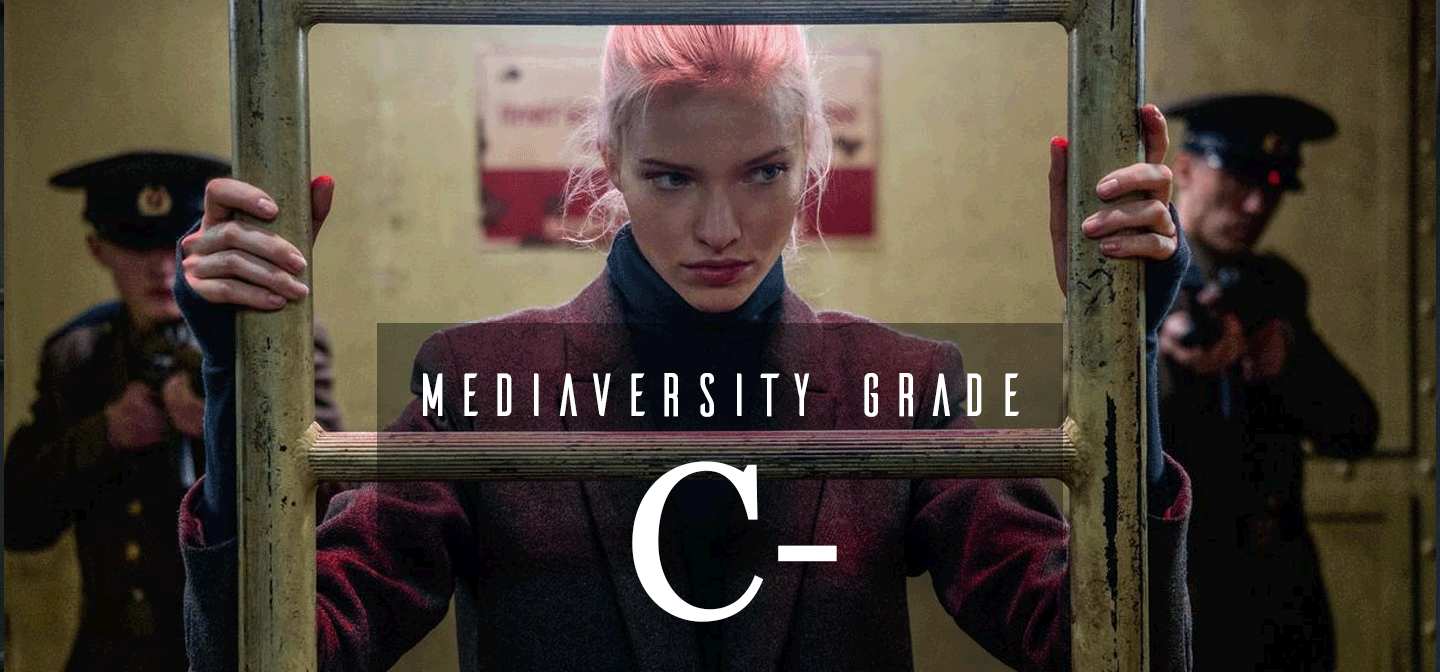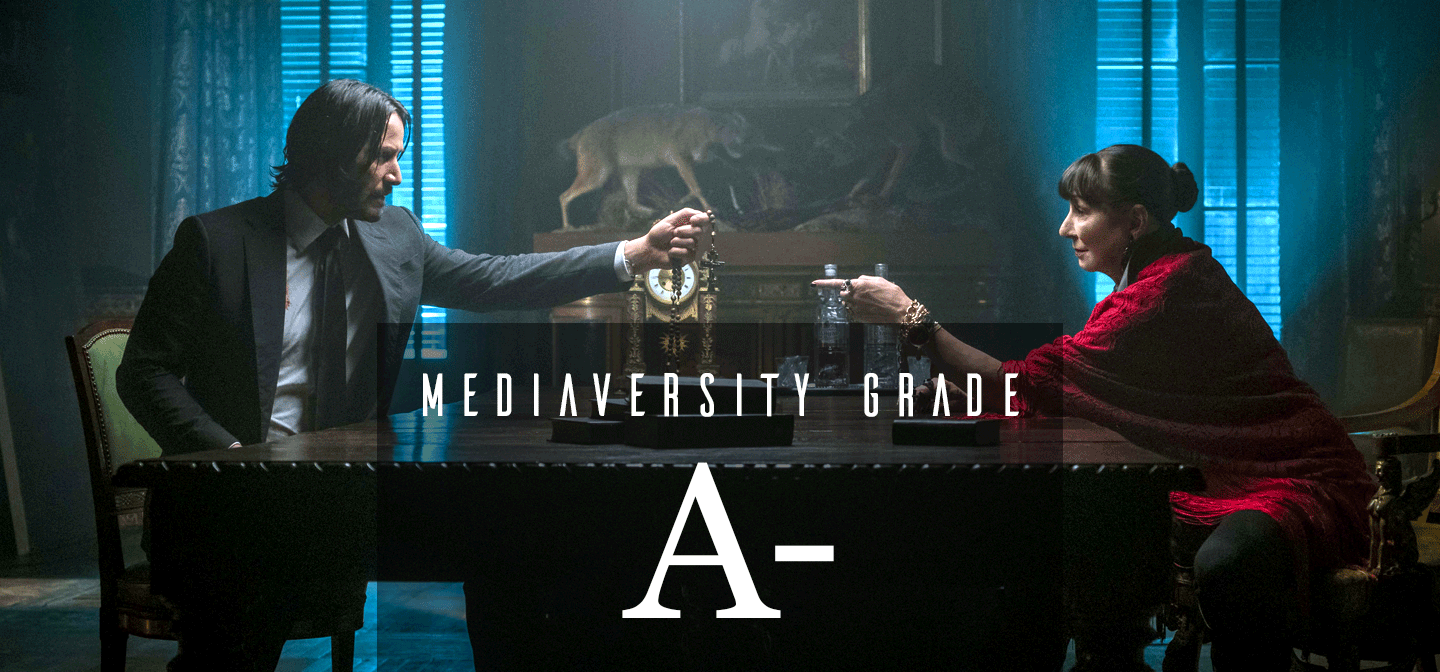Anna
“Anna mines familiar story beats and stereotypes without adding anything new to the genre.”
Title: Anna (2019)
Director: Luc Besson 👨🏼🇫🇷
Writer: Luc Besson 👨🏼🇫🇷
Reviewed by Murtada Elfadl 👨🏽🇸🇩🇺🇸🌈
Note: This review was commissioned by Lionsgate. The content and methodology remain 100% independent and in line with Mediaversity's non-commissioned reviews.
Technical: 2/5
The premise of Anna is simple enough: A young Russian woman (Sasha Luss) in a thankless, abusive relationship with a violent thug (Alexander Petrov) gets recruited as an agent by the KGB after running into trouble with the law. She goes underground as a model in Paris and becomes a double agent for the CIA, all the while planning her escape to early retirement in Hawaii.
Anna starts promisingly with short, well-edited scenes showing several CIA operatives in Moscow as they are arrested and interrogated by the KGB, followed by a surprising message sent to CIA headquarters in Langley, VA. However, writer-director Luc Besson makes the structure unnecessarily complex, serving too many swerves and spoiling the audience's enjoyment. We start in the middle of the story then go back and forth in the narrative, sometimes even offering a flashback within a flashback. More confounding still are the times when the same scenes are played again from different perspectives, or when the characters describe something we just saw or are about to see. It all adds up to a choppy and repetitive story that’s hard to get invested in.
Most egregiously, an unnecessary and long backstory adds nothing except an attempt to generate sympathy for the lead character. Its inclusion is even more perplexing because in his laziness Besson forgot to come up with something original and just repeated the same character backstory of his first female assassin movie, the better conceived La Femme Nikita (1990).
Along the way, Anna occasionally becomes compelling. Perhaps that’s most apparent in the film’s best scene: a long set piece showing Anna fighting what appear to be about a hundred lookalike white men all dressed in black suits and white shirts. The scene favors style over plausibility because, really, how many bodyguards can one bad man have? Yet it’s so excitingly shot and choreographed that real-life believability becomes a moot point. More flash, less flashback next time, Monsieur Besson.
Gender: 4/5
Does it pass the Bechdel Test? Yes
Due to staccato pacing, it takes some time for the film’s central relationship to be revealed. Surprisingly, it’s the one between Anna and her KGB boss, Olga (Helen Mirren). Their relationship starts antagonistically but, in true Hollywood fashion, turns into a friendship as Olga becomes both a mentor and an ally to Anna. It’s refreshing that in an otherwise by-the-book action thriller—a genre normally dominated by men—this relationship between two women across generations is the one given the most screen time.
Speaking in a thick Russian accent, hiding half her face behind huge glasses, and dropping bon mots left and right, Mirren is clearly having fun, and we as the audience happily go along for the ride. In the lead role, Luss is less successful. She looks the part and brings an agile physicality to the action scenes. Alas, she lacks presence and appears wooden in scenes that call for emotional acuity, undercutting the movie’s conceit that Anna is better and brighter than all the men who think they know how to handle her.
Race: 1/5
Most of Anna takes place in cosmopolitan Paris, a city known for its diverse and international population. Yet almost everybody who appears on screen is white. Anna shares a huge apartment with many other models from the agency she works for, but all the extras playing those parts are white. In the background of a couple photoshoot and party scenes a few non-white extras appear in support roles such as makeup assistants. However, almost none are models or photographers, a casting decision that feels erroneous given how the modeling industry has been trying to diversify in recent years, and nary a campaign appears 100% white these days.
Reprehensibly, all of the non-white actors are silent. Black British actor Réginal Kudiwu appears in one scene as a bodyguard tussling with Anna. Though Anna speaks briefly in the scene, all he does is look and nod. This could be construed as a character choice since most bodyguards are not known for their loquaciousness. However, taken in with the lack of any other major non-white characters, it’s merely unacceptable.
Bonus for LGBTQ: +0.75
Presented as unapologetically bisexual, Anna engages in sexual and romantic dalliances with both her CIA contact (Cillian Murphy) and another KGB handler (Luke Evans), while having a relationship with a fellow female model (Lera Abova). The film doesn’t dwell on explaining any of these relationships and presents the sexuality of the character as matter of fact without labels.
Bonus for Age: +0.25
Although written with familiar tropes for this type of older mentor—grumpy, difficult to impress—the then-73-year-old Mirren brings an infectious joie de vivre to the proceedings with her tongue-in-cheek performance as Olga.
Mediaversity Grade: C- 2.67/5
Despite centering a cross-generational female friendship and choosing a smart capable female character to lead its story, Anna sees the world as monolithic. Its characters’ sexuality may be fluid and they may skew more female, yet they remain firmly majority white. Besson mines familiar story beats and stereotypes without adding anything new to the action genre. He has done the same with better results earlier in his career.




